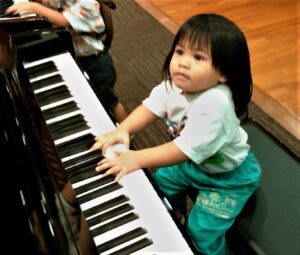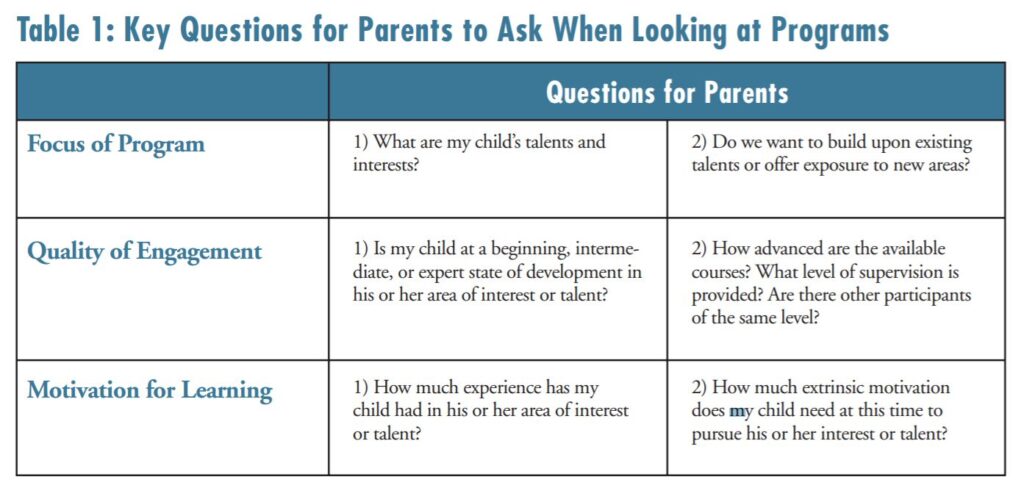
Your children lead vastly differently lives compared to yours. Remember the days when you were skinning your knees outdoors or getting myopia from reading in the library; or the weekend enrichment programs your parents choose, which would probably be music or swimming lessons.
Today you are swamped with options for your children. Your kids are likely to rush from school straight to an academic enrichment class, and have their weekends filled with “recreation” programs such as tennis or art lessons. As time and money are finite resources, you will definitely want to maximise both by choosing the right kind of enrichment programs for your children.
When children are still young, they will benefit most from being exposed to a wide range of activities. Many enrichment centes offer trial sessions and this is an inexpensive way to let your children try different things and also see how the lessons are being conducted. Once you know what your children are interested in or show particular potential for, use the following three steps to determine which enrichment program to choose for your children.

Focus of Program
This refers to the type of activity (i.e. piano lessons, gymnastics, etc.). It may seem like common sense to choose an enrichment class that your children show potential in, but this may not be the case if the school is already providing them with advanced lessons. You will need to understand not only where your children’s talents lie but also areas they will need to put in more effort. Sometimes it may be better to let them do an activity that works on the latter so as to allow your children to have a more rounded development.
Quality Of Engagement
Is the enrichment program flexible enough to let a gifted child join a higher level class based on ability instead of grouping them by age? If your children have demostrated highly advanced abilities in a particular area, you might have to considering one-on-one lessons instead of group sessions, in order to better serve the needs of your children.
Motivation For Learning
Motivation can be extrinsic or intrinsic. In the early stages of learning a skill, most children require extrinsic motivation and positive reinforcement in the form of rewards and compliments. This helps them build the confidence and desire to get to the next learning stage. At the second stage of learning, they would begin to develop self-interest and increased commitment to become a proficient practitioner. When they develop intrinsic motivation for what they are doing, they become self-motivated to practice and perfect their skills. At each stage your children’s needs will differ and you may need to change the enrichment provider if they are unable to provide the necessary support or challenges your children need.
If you need help knowing where your children’s potential for giftedness lies and what areas of improvement they need to work on, sign up for our consultation service. Our academic director will provide a profile of your children and provide you with the right strategies to develop their talents.